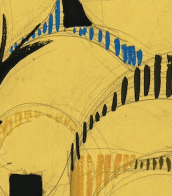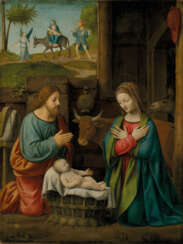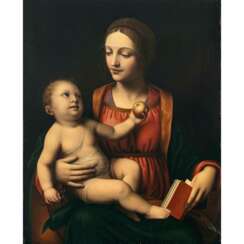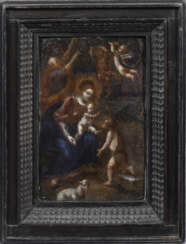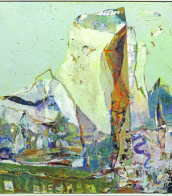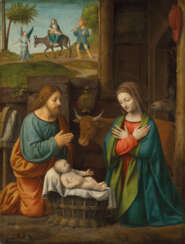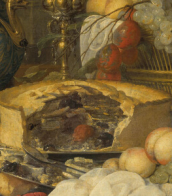luini, bernardino
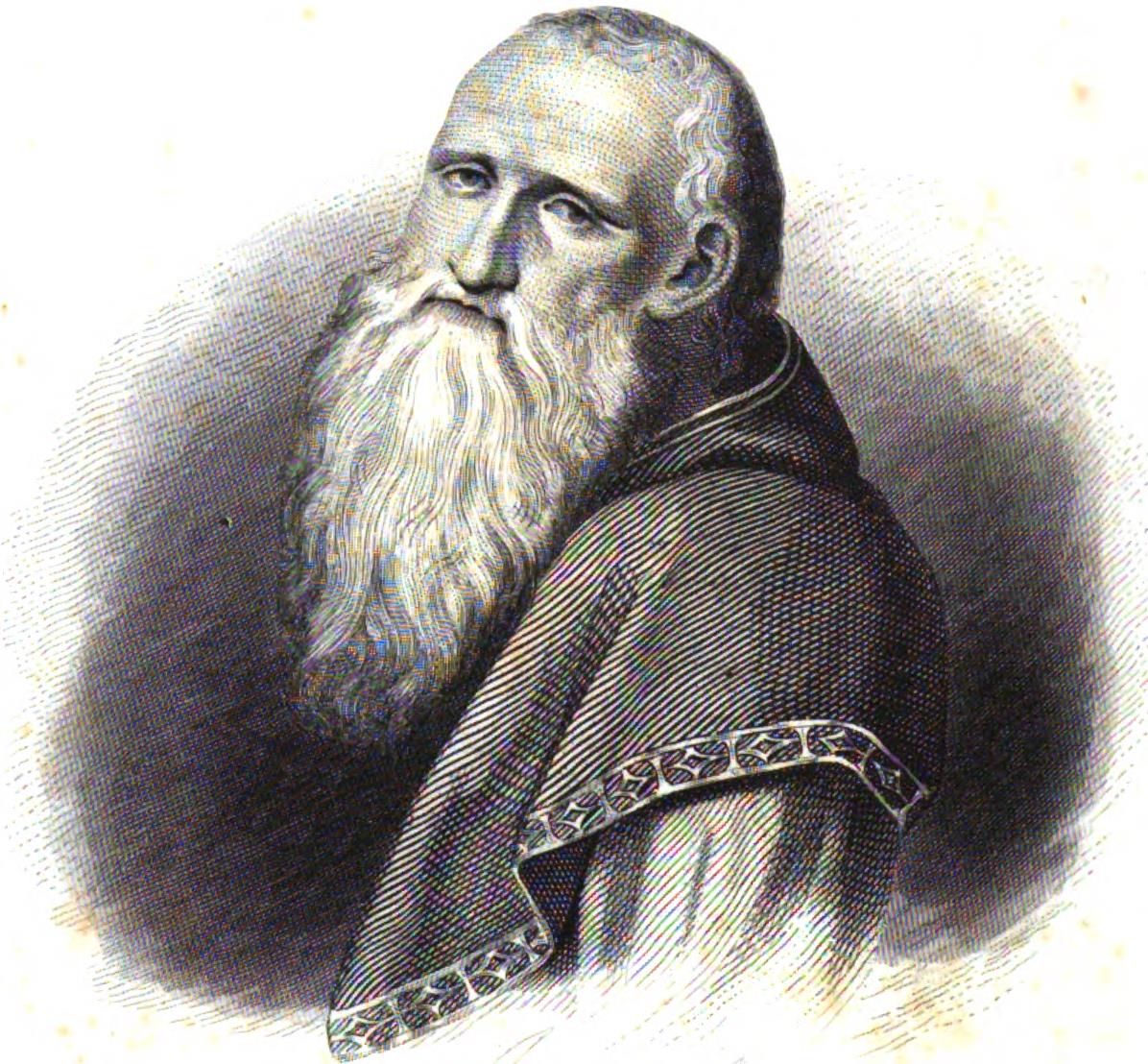
Bernardino Luini, born in Runo, Lombardy around 1481, remains a significant figure in the 16th-century Lombard school of painting. A key member of the Milanese second Leonardo movement, he, along with Cesare da Sesto and Giampietrino Francesco Melzi, contributed to the essence of this artistic era. Luini's journey into art was accompanied by his marriage to Margherita Lomazzo in 1510. Among their four sons, Giovan Pietro and Aurelio followed their father's footsteps, becoming painters themselves. Influenced profoundly by Raphael's work, Melozzo da Forlì, and Leonardo da Vinci, Luini skillfully blended Leonardo's techniques with his own innovations. His Salome with the Beheading of John the Baptist (Uffizi) draws inspiration from Leonardo's La Scapigliata, while his Holy Family with the Infant John (Prado) echoes Leonardo's lost original sketch of affectionate children.
Luini's artistic journey began with the disputed but noteworthy Madonna with the Child and Two Saints (1507), now exhibited in Paris's Musée Jacquemart-André. One of his remarkable works, Madonna della Buonanotte, can be found in the Chiaravalle Milanese monastery. This painting held a unique purpose – after evening prayers, passing monks would be greeted by the artwork, offering them a peaceful night's rest. In later years, Luini's focus shifted to fresco painting. Notably, his captivating depictions of the Crucifixion in Lugano's Santa Maria degli Angioli church and the small-scale Crucifixion in San Nazario in Dino, a subdivision of Sonvico, are celebrated masterpieces that showcase his skill.
Bernardino Luini's legacy endures as a testament to his mastery of Lombard Renaissance art. His fusion of Leonardo's influence with his own creative brilliance left an indelible mark on the artistic landscape of the 16th century, making him an integral part of the Milanese second Leonardo movement.
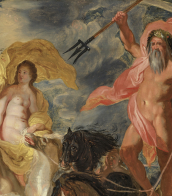

Bernardino Luini, born in Runo, Lombardy around 1481, remains a significant figure in the 16th-century Lombard school of painting. A key member of the Milanese second Leonardo movement, he, along with Cesare da Sesto and Giampietrino Francesco Melzi, contributed to the essence of this artistic era. Luini's journey into art was accompanied by his marriage to Margherita Lomazzo in 1510. Among their four sons, Giovan Pietro and Aurelio followed their father's footsteps, becoming painters themselves. Influenced profoundly by Raphael's work, Melozzo da Forlì, and Leonardo da Vinci, Luini skillfully blended Leonardo's techniques with his own innovations. His Salome with the Beheading of John the Baptist (Uffizi) draws inspiration from Leonardo's La Scapigliata, while his Holy Family with the Infant John (Prado) echoes Leonardo's lost original sketch of affectionate children.
Luini's artistic journey began with the disputed but noteworthy Madonna with the Child and Two Saints (1507), now exhibited in Paris's Musée Jacquemart-André. One of his remarkable works, Madonna della Buonanotte, can be found in the Chiaravalle Milanese monastery. This painting held a unique purpose – after evening prayers, passing monks would be greeted by the artwork, offering them a peaceful night's rest. In later years, Luini's focus shifted to fresco painting. Notably, his captivating depictions of the Crucifixion in Lugano's Santa Maria degli Angioli church and the small-scale Crucifixion in San Nazario in Dino, a subdivision of Sonvico, are celebrated masterpieces that showcase his skill.
Bernardino Luini's legacy endures as a testament to his mastery of Lombard Renaissance art. His fusion of Leonardo's influence with his own creative brilliance left an indelible mark on the artistic landscape of the 16th century, making him an integral part of the Milanese second Leonardo movement.
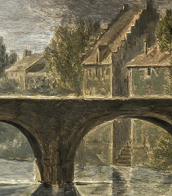

Bernardino Luini, born in Runo, Lombardy around 1481, remains a significant figure in the 16th-century Lombard school of painting. A key member of the Milanese second Leonardo movement, he, along with Cesare da Sesto and Giampietrino Francesco Melzi, contributed to the essence of this artistic era. Luini's journey into art was accompanied by his marriage to Margherita Lomazzo in 1510. Among their four sons, Giovan Pietro and Aurelio followed their father's footsteps, becoming painters themselves. Influenced profoundly by Raphael's work, Melozzo da Forlì, and Leonardo da Vinci, Luini skillfully blended Leonardo's techniques with his own innovations. His Salome with the Beheading of John the Baptist (Uffizi) draws inspiration from Leonardo's La Scapigliata, while his Holy Family with the Infant John (Prado) echoes Leonardo's lost original sketch of affectionate children.
Luini's artistic journey began with the disputed but noteworthy Madonna with the Child and Two Saints (1507), now exhibited in Paris's Musée Jacquemart-André. One of his remarkable works, Madonna della Buonanotte, can be found in the Chiaravalle Milanese monastery. This painting held a unique purpose – after evening prayers, passing monks would be greeted by the artwork, offering them a peaceful night's rest. In later years, Luini's focus shifted to fresco painting. Notably, his captivating depictions of the Crucifixion in Lugano's Santa Maria degli Angioli church and the small-scale Crucifixion in San Nazario in Dino, a subdivision of Sonvico, are celebrated masterpieces that showcase his skill.
Bernardino Luini's legacy endures as a testament to his mastery of Lombard Renaissance art. His fusion of Leonardo's influence with his own creative brilliance left an indelible mark on the artistic landscape of the 16th century, making him an integral part of the Milanese second Leonardo movement.
